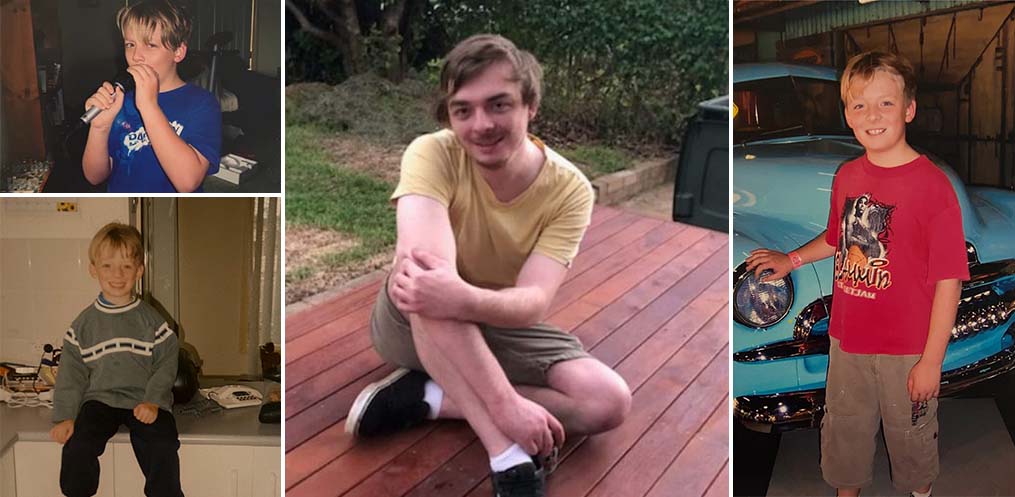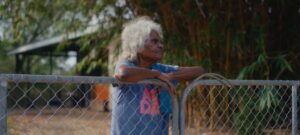Warning: This story contains details that may be distressing.
This story was first published on ABC, which can be found here.
No parent expects their child’s life to be cut short by alcohol.
My son Dylan was just 26 when he died from alcohol-induced hepatitis, or liver inflammation.
The suffering he endured at the end of his life was confronting and heart-breaking. I wouldn’t wish it upon any other mother or their child.
Growing up, Dylan was always very shy and sensitive. He wasn’t one to ask for a cuddle. You had to draw in close to him.
He loved cars and was fascinated by how they worked. As an adult, he was clever and informed about international politics.
Dylan had a lifelong affinity with animals and objected to birds being kept in cages.
He used to feed cockatoos on his balcony with black sunflower seeds and he would let them come inside his flat.
I would take Dakota, our Husky, over to his flat nearly every day. It became part of his routine; the first thing he would do when I arrived was get her a bowl of water.
She was a pretty special dog. She loved Dylan. It was like they fed off each other’s energy.
When he was well enough, Dylan used to walk Dakota around the block with me. But by the last month of his life, he couldn’t walk her.
After Dylan died, Dakota acted really strangely at home with me. She would go upstairs, looking for him.
It was heartbreaking when Dylan came back from hospital, because he wanted to see his flat. He thought he was going to live, and his sisters and I did too.
We took Dakota over and Dylan was in bed. She started licking his face, she just wouldn’t leave him alone. Looking back, it’s like she knew it was the last time she was going to see him.
When he was dying, Dylan told me: “Mum, I want things to change.”
Reflecting on the damage caused by the cask wine that had destroyed his liver, my beautiful son told me he wanted to raise awareness about how harmful alcohol can be.
Sweet, cheap and in abundance, these lethal boxes contain so much alcohol that it is possible to consume very high-risk amounts for the cost of a meal.
Alcohol retailers offer prices as low as $10 for 4 litres of cask wine – that’s 30 standard drinks.
Dylan said if he could have left any legacy, it would be to get warning labels on the alcohol that put him on a path to dependence.
Young people growing up in Australia have no idea of the damage alcohol can cause. Alcohol is portrayed as fun, getting drunk as a normal rite of passage.
Where are the warnings showing the damage that can be caused by consuming alcohol, especially those ultra-cheap products containing large volumes of alcohol?
If people were aware of what my son and our family went through, they might stop to realise just how dangerous these boxes are.
Dylan was drinking up to five litres of cask wine a day.
It’s just too easy to become addicted when alcoholic products are so cheap, and retailers ignore the obvious suffering of customers who come in day after day to buy vast quantities of alcohol.
It’s not just me, Dylan’s mother, who has been affected by his death.
His sisters are haunted by the memory of witnessing his final moments. Seeing him deteriorate so rapidly was shocking.
It seemed like one minute Dylan was totally coherent and able to hold a conversation out the front of the hospital.
Just days later, his platelets dropped, and his arms and legs swelled up with fluid. He couldn’t walk.
The next day, they sent him to the hospice.
I went home that night, something I regret to this day.
At about 3am, Dylan’s pulmonary artery ruptured.
But now my son is gone and nothing can bring him back.
I hate to think of other mothers going through what I’ve gone through, watching their kids drink night after night and feeling powerless to save them.
I feel for those who will have to see what I saw at the end, the worst thing any mother could imagine.
In all the years that I attended medical appointments, through Dylan’s repeated attempts to get and stay sober, no doctor ever told us what end-stage liver disease would be like.
It’s almost a taboo subject.
We never knew if could be so rapid or how bad it would be.
There was little sympathy from the medical professionals we encountered; the attitude is ‘you’ve done this to yourself’.
But where is the responsibility of the companies that sell litres of alcohol for pocket change.
After going through multiple detoxes and battling mental health and alcohol dependence, Dylan had managed to stay sober for five months in the year before his death.
My son wanted to live. Sadly, he couldn’t find a way through his addiction.
Dylan struggled to access the right mental health treatment in a system that doesn’t cater to people who have depression or anxiety, as well as alcohol dependence.
We need to make alcohol companies accountable for the damage their products cause and improve support for people suffering from addiction and their loved ones.
More controls are needed to stop retailers from selling vast quantities of alcohol to people at risk of harm, both online and in stores.
Alcohol should carry warning labels and companies should be stopped from selling these products so cheaply.
I have buried my son and I can’t bring him back, but I won’t let his death be for nothing.
If you or anyone you know needs help:
- Lifeline 13 11 14
- National AOD hotline 1800 250 015
- Family Drug Support Australia 1300 368 186
- Medication Support & Recovery Service: 1800 931 101
- DirectLine 1800 888 236
- Gambling Help Online 1800 858 858
You can find more support services here.
If you’re aiming to drink less or to quit altogether, here are some tips and tools that can help you cut back on alcohol.
In the coming months, we’ll be regularly sharing stories like Rachel’s on our website. Sign up to the FARE email list to receive similar stories.
If you have experiences to share – short or long – that can help people know they’re not alone, please share your story through our Voices of Change project.







